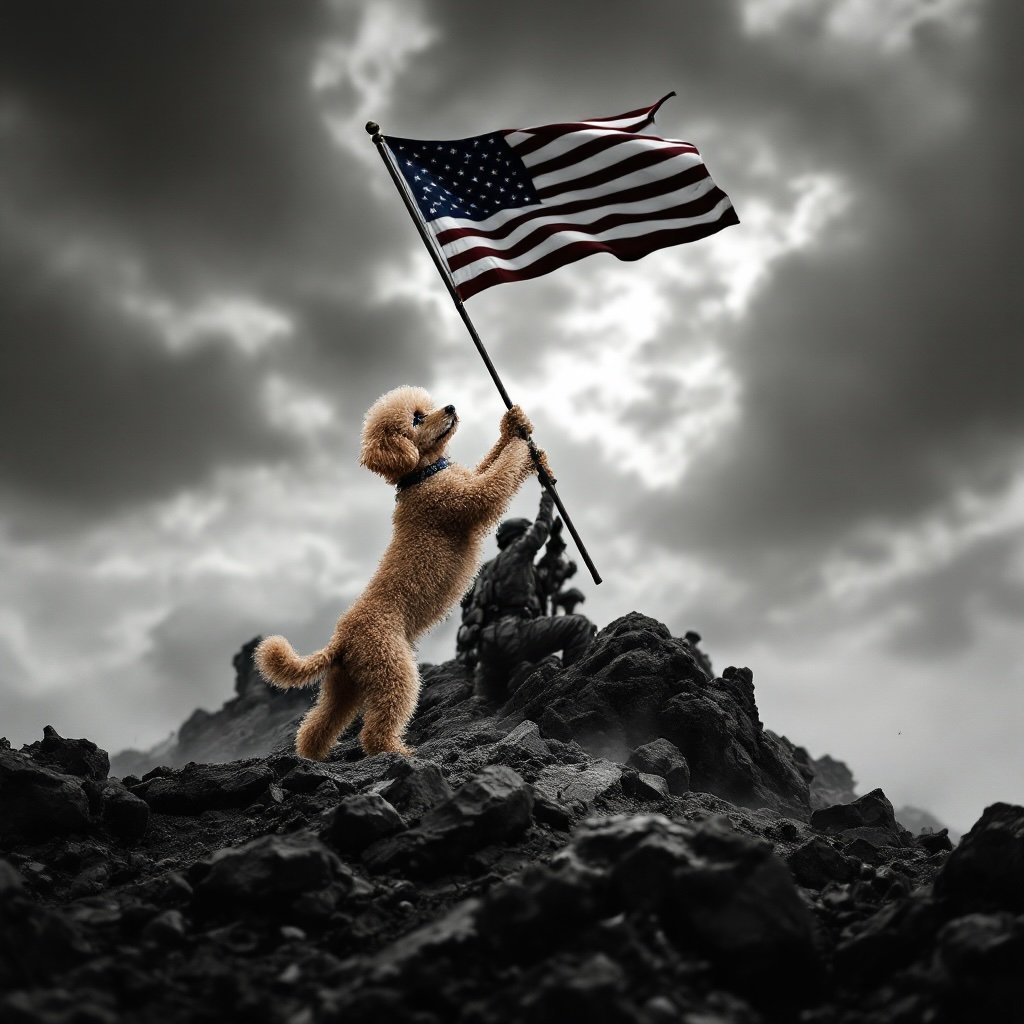FLOSSI AND THE CODE TALKERS - IWO JIMA
The Code Talkers: Unsung Heroes of Wartime Communication
Overview
The Code Talkers were Native American soldiers who played a pivotal role in U.S. military operations during both World Wars—most notably World War II—by using their Indigenous languages to create secure, unbreakable codes for battlefield communication. These contributions were vital in ensuring operational secrecy and success, especially in the Pacific Theater.
Origins and Development
The concept began in World War I, when Choctaw soldiers used their language to transmit coded messages. The success of this method led to its revival and expansion during World War II.
The most famous Code Talkers were from the Navajo Nation, recruited by the U.S. Marine Corps in 1942. Other tribes involved included the Cherokee, Choctaw, Comanche, Hopi, Meskwaki, and others.
Why Native Languages?
Many Indigenous languages were unwritten, complex, and unfamiliar to outsiders.
They lacked standardized alphabets or dictionaries, making them impossible for Axis codebreakers to decipher.
Native speakers could communicate messages instantly, far more efficiently than encryption devices like the Enigma machine.
The Navajo Code
Developed by 29 original Navajo recruits, the Navajo code included over 600 terms for military communication.
It was never broken by the enemy, making it one of the most secure communication systems in modern military history.
A typical message that took 30 minutes to encrypt and decrypt by a machine could be sent and understood in under a minute by Code Talkers.
Key Battles
Navajo Code Talkers played critical roles in:
Guadalcanal
Iwo Jima
Saipan
Okinawa
Major Howard Connor stated at Iwo Jima, "Were it not for the Navajos, the Marines would never have taken Iwo Jima."
Post-War Recognition
Code Talkers were sworn to secrecy despite their heroism and received little recognition for decades.
Eventually, they were honored:
2000: President Bill Clinton awarded the original 29 Navajo Code Talkers with the Congressional Gold Medal.
2008: The Code Talkers Recognition Act honored all Native American Code Talkers from both World Wars.
A commemoration marking the 80th anniversary of Iwo Jima has been overshadowed by the removal of the battle’s most iconic image from the Pentagon’s website.
The photograph of six war-weary marines hoisting the US flag on Mount Suribachi was deleted this month on the orders of Pete Hegseth, the US defence secretary, to erase all traces of the previous administration’s policy of diversity, equity and inclusion (DEI).
The flag itself was not the offending element, but a description focusing on Ira Hayes, a Pima Indian and one of the six soldiers.
Hayes became a symbol of the heroism of Native Americans during the war, which was exemplified by Navajo code talkers in the Battle of Iwo Jima. They are credited with securing strategic communications as 100,000 US troops stormed the positions of 22,000 Japanese imperial soldiers, who had built a complex system of tunnels and cave defences.
Almost 7,000 Americans were killed, and only 1,000 Japanese soldiers survived.





